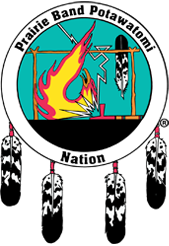January 30, 2014 –
WASHINGTON, DC – As part of President Obama’s commitment to help strengthen Native American communities, Secretary of the Interior Sally Jewell and Assistant Secretary – Indian Affairs Kevin Washburn today announced cooperative agreements with the Confederated Salish and Kootenai Tribes (CSKT) of the Flathead Reservation and the Northern Cheyenne Tribe, both located in Montana, for continued collaborative implementation of the Land Buy-Back Program for Tribal Nations (Buy-Back Program) on their reservations. The Buy-Back Program will purchase trust or restricted interests from willing sellers and transfer those interests to the tribes in order to unlock lands for tribal development and other priorities.
Secretary Jewell met with CSKT Chairman Ronald Trahan today to commemorate the new cooperative agreement and underscore the Program’s commitment to government-to-government partnerships. The CSKT and Northern Cheyenne agreements, the second and third under the Buy-Back Program, will provide resources to the tribal governments to facilitate outreach and education on the Buy-Back Program, and to solicit interest from owners and further identify tribal priorities.
“I commend the leaders of the Confederated Salish and Kootenai Tribes and Northern Cheyenne Tribe for their interest and initiative in working to implement this important program in their communities,” said Secretary Jewell. “We look forward to working with them on this important partnership, which ultimately transfers land to tribal ownership. These agreements underscore the important role that tribes fulfill in improving the Buy-Back Program’s effectiveness and efficiency, while providing potential economic development opportunities for current and future generations.”
Interior holds about 56 million acres in trust for American Indians in more than 200,000 tracts. Of those, nearly 94,000 acres – on about 150 reservations – have multiple and in some cases numerous owners who each hold a fractional interest available for purchase by the Buy-Back Program. The fractionation of tribal lands over generations has locked away resources and prevented effective land-use decision making by tribes. This has made it increasingly difficult for tribes to manage this land for economic development and other uses.
The Buy-Back Program was created to implement the land consolidation component of the Cobell Settlement, which provided $1.9 billion to purchase fractionated land interests from willing sellers and consolidate those interests across Indian Country. The Buy-Back Program allows interested individual owners to receive payments for voluntarily selling their land. Consolidated interests are immediately transferred to tribal governments where they stay in trust for uses benefiting the tribes and their members. The Department intends to deliver purchase offers at the CSKT and Northern Cheyenne reservations later this year.
“This is another important step in carrying out a vital program to strengthen tribal sovereignty by supporting the beneficial consolidation of tribal lands,” said Assistant Secretary Washburn. “While we know that it may be a challenge to reach landowners who are spread across the country, we are committed to exhausting all efforts to make sure that individuals are aware of this historic opportunity.”
The cooperative agreements Interior is entering into with interested tribes are often tailored to the specific circumstances of each tribal government and location involved. For example, the CSKT have performed appraisals and other land consolidation activities for many years, and will provide appraisals for fractionated tracts on the Flathead Reservation.
“This will launch the Confederated Salish and Kootenai Tribes’ plan to purchase an additional 38,400 acres of reservation trust land to consolidate fractionated interests,” said Tribal Chairman Trahan. “Our trust lands must be managed for the benefit of the Tribes and our membership. Trust land that is heavily fractionated or split up into very small parcels with multiple owners, more often than not, sit idle and produce nothing for its owners. Our tribal government has long been a leader in restoring our native home lands. This opportunity continues the vision of our elders and past leaders.”
The Northern Cheyenne community has also been preparing for Buy-Back Program implementation for many months, including prioritizing its acquisition goals. Interior has already completed mineral analyses on land parcels with highly fractionated ownership interests and begun detailed mass appraisal efforts at Northern Cheyenne.
“The Land Buy Back Program is an opportunity for the Northern Cheyenne Tribe to acquire highly fractionated land from landowners that will preserve our homeland for future generations,” said Northern Cheyenne President Llevando Fisher. “The program may allow beneficial use of land that has been restricted due to the, at times, extreme number of heirs who must consent to land leases.”
Today’s agreements build on earlier collaborations with the Oglala Sioux Tribe of the Pine Ridge Reservation, which signed the first cooperative agreement in December 2013, and the Makah Indian Reservation and Rosebud Sioux Reservation, where purchases of fractionated interests are underway.
Owners who have received offers at Pine Ridge must respond immediately – TODAY; for those with interests at the Makah Indian Reservation by February 3; and for those with interests on the Rosebud Sioux Reservation by February 10. More information is available here.
The Department has announced an open solicitation period through March 14, 2014, during which tribes with jurisdiction over the most fractionated locations (about 90 percent of all fractionated interests) may submit letters of interest or cooperative agreement applications for participation in the Buy-Back Program.
There are a number of steps that tribal governments can take now to prepare for involvement in the Buy-Back Program, including increasing owner awareness and designating an authorized tribal point of contact to engage with the Program. Details are online here.
Landowners with fractional interests on the Flathead and Northern Cheyenne Reservations can contact the Trust Beneficiary Call Center at (888) 678-6836 to get more information about the potential to sell land so that it can be returned to the tribe or to register their information.
